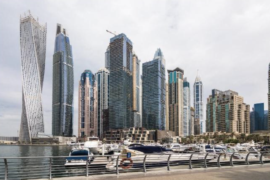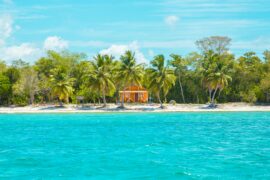This article may contain references to products or services from one or more of our advertisers or partners. We may receive compensation when you click on links to those products or services. Nonetheless, our opinions are our own.
- Key Highlights
- Introduction
- Discovering the Appeal of Retiring in Portugal
- The Allure of Portugal’s Climate and Scenery
- Cost of Living: An Affordable European Retreat
- Understanding Who Can Retire in Portugal
- Preparing for Your Portuguese Retirement: A Beginner’s Guide
- Step-by-step Guide to Retiring in Portugal
- Financial Planning for Retirement in Portugal
- Conclusion
-
Frequently Asked Questions
- What is the minimum income required for the D7 Visa?
- Can US citizens buy property in Portugal?
- How does Portugal’s healthcare system work for expats?
- Are there tax benefits for retirees in Portugal?
- What are the best areas in Portugal for retirees?
- What are the visa requirements for retiring in Portugal?
- Are there any specific financial considerations for retirees?
- Recommended Reads
Key Highlights
- Great Tax Benefits: Portugal’s Non-Habitual Resident (NHR) program appeals to retirees by offering significant tax advantages for a limited time. This makes it an excellent option for American retirees.
- Lower Cost of Living: Portugal offers a lower cost of living compared to the United States and many European countries, allowing retirement savings to last longer.
- Golden Visa Opportunity: Wealthy retirees can explore the Golden Visa program, which grants residency through investment and provides access to the European lifestyle.
- High-Quality Healthcare: Portugal provides excellent public healthcare at affordable rates, with the option for private health insurance for added coverage.
- Enjoy the Portuguese Lifestyle: Retirees can immerse themselves in Portugal’s rich culture, enjoy traditional dishes, and relax in stunning surroundings.
Introduction
Are you considering where to spend your retirement years? Portugal, with its warm climate, friendly expat communities, and affordable cost of living, may be the perfect choice. Known for its rich culture and stunning landscapes, Portugal offers retirees a fulfilling and affordable lifestyle. This guide will help you explore why Portugal is a top retirement destination and how to move over seamlessly.
Discovering the Appeal of Retiring in Portugal
Portugal is more than just an affordable place to live—it’s a country filled with natural beauty, vibrant cities, and charming towns. From picturesque beaches to rolling vineyards, the diversity of Portugal’s landscapes caters to various lifestyles.
Retirees are drawn to the warmth and friendliness of the Portuguese people, along with the country’s lively cultural traditions. Whether your interests lie in history, art, or local cuisine, Portugal offers endless opportunities to enjoy a fulfilling retirement.
The Allure of Portugal’s Climate and Scenery
Portugal’s favorable climate is one of its strongest appeals for retirees. With mild winters and warm summers, the weather allows for outdoor activities all year round. Coastal areas enjoy cooling Atlantic breezes, adding to the comfort of the summer months.
From the Algarve’s stunning beaches to Lisbon’s historic charm and the Douro Valley’s rolling hills, Portugal’s diverse regions offer something for everyone. Whether you prefer bustling cities or tranquil villages, Portugal’s natural beauty enhances the quality of life for retirees.
Cost of Living: An Affordable European Retreat
Portugal offers a lower living cost than many Western European countries and the United States. Everyday expenses such as housing, dining, and groceries are significantly more affordable, making it an attractive option for retirees on a budget.
For example, in Lisbon:
- Renting a home is approximately 65% cheaper than in New York.
- Dining out costs about 50% less.
- Grocery prices are nearly 40% lower.
This affordability allows retirees to stretch their pensions and savings further, enjoying a comfortable lifestyle without overspending.
Understanding Who Can Retire in Portugal
For EU/EEA and Swiss Citizens
EU, EEA, and Swiss citizens can easily retire in Portugal without a visa. They enjoy the same rights as Portuguese citizens, including the ability to live and work in the country. While a residence certificate is recommended for stays longer than 90 days, permanent residency is available after five years, providing long-term security.
For Non-EU Citizens, Including US Citizens
Non-EU retirees, such as US citizens, must obtain a visa or residence permit to retire in Portugal. Popular options include:
- D7 Visa: Designed for individuals with passive income such as pensions, rental income, or investment dividends.
- Golden Visa: Available to those who can make significant investments in Portugal, such as purchasing real estate or transferring capital.
Both visas provide pathways to residency and, eventually, Portuguese citizenship.
Preparing for Your Portuguese Retirement: A Beginner’s Guide
Planning your move to Portugal involves organizing documents, understanding visa requirements, and ensuring financial readiness.
Gathering Essential Documents and Information
Key documents include:
- A valid passport with at least six months of validity.
- A Portuguese tax identification number (NIF), necessary for opening bank accounts and buying property.
- Financial statements proving income sources, such as pension payments or investment dividends.
- A criminal background check from your home country.
Having these documents ready will streamline your visa application process and help you settle in smoothly.
Evaluating Financial Readiness: Budgeting for Your Move
Create a detailed budget that accounts for:
- Living expenses in your chosen area.
- Visa fees and relocation costs.
- Potential healthcare and insurance expenses.
Portugal’s tax system, including the NHR program, should also be factored into your financial planning. Consulting a tax advisor can help you optimize your budget and understand any obligations related to worldwide income.
Step-by-step Guide to Retiring in Portugal
Step 1: Researching the Ideal Location
Portugal offers a range of living environments:
- Lisbon: A lively capital with rich culture and history.
- Porto: Known for its riverside charm and wine heritage.
- The Algarve: Famous for its stunning beaches and laid-back vibe.
Consider factors such as proximity to healthcare, expat communities, and transportation options when choosing your location.
Step 2: Understanding Visa Requirements
If you are a non-EU citizen, applying for a visa is essential. The D7 Visa is ideal for retirees with passive income, while the Golden Visa is suited for those able to invest in Portugal. Start the application process early and ensure all required documents are complete to avoid delays.
Step 3: Securing Healthcare Coverage
Portugal’s public healthcare system (SNS) is affordable and high-quality. However, private health insurance provides access to a wider network of specialists and shorter wait times. Compare plans to find one that meets your needs and budget.
Step 4: Managing Your Finances
Opening a Portuguese bank account is essential for managing finances. Additionally, familiarize yourself with the Portuguese tax system and take advantage of the NHR program, which offers significant tax benefits for the first ten years of residency.
Financial Planning for Retirement in Portugal
Cost Breakdown: Daily Living Expenses
| Expense | Estimated Monthly Cost (EUR) |
|---|---|
| Rent | €600 – €1500 |
| Utilities | €100 – €200 |
| Groceries | €200 – €400 |
| Transportation | €50 – €100 |
| Healthcare | €50 – €100 |
| Entertainment | €100 – €300 |
These estimates vary depending on location and lifestyle. For example, living in Lisbon or Porto may be more expensive than in smaller towns or rural areas.
Conclusion
Portugal offers retirees an exceptional combination of affordability, quality of life, and cultural richness. Retirees can enjoy a seamless transition with proper planning, including securing visas, understanding the healthcare system, and managing finances. Portugal promises a fulfilling retirement if you’re drawn to its scenic landscapes, welcoming communities, or tax benefits. Start planning your move today to embrace the relaxed and vibrant Portuguese lifestyle.
Frequently Asked Questions
What is the minimum income required for the D7 Visa?
For a single applicant, you need at least €7,200 annually in passive income. Additional income is required for dependents.
Can US citizens buy property in Portugal?
Yes, US citizens can buy property in Portugal. The process is straightforward, but it is recommended that you hire a real estate lawyer.
How does Portugal’s healthcare system work for expats?
Expats have access to public healthcare (SNS) at reduced costs. Private health insurance is also available for more comprehensive coverage.
Are there tax benefits for retirees in Portugal?
Yes, the Non-Habitual Resident (NHR) program provides significant tax benefits for the first ten years of residency.
What are the best areas in Portugal for retirees?
Popular options include Lisbon for its city life, Porto for its historic charm, and the Algarve for its beaches and relaxed atmosphere.
What are the visa requirements for retiring in Portugal?
Non-EU citizens typically apply for the D7 visa. Key documents include a valid passport, proof of income, and health insurance.
Are there any specific financial considerations for retirees?
Yes, retirees should account for taxes on worldwide income, currency exchange rates, and healthcare costs. Consulting a financial advisor is recommended.

Reviewed and edited by Albert Fang.
See a typo or want to suggest an edit/revision to the content? Use the comment form below for feedback.
At FangWallet, we value editorial integrity and open collaboration in curating quality content for readers to enjoy. Much appreciated for the assist.
Did you like our article and find it insightful? We encourage sharing the article link with family and friends to benefit as well - better yet, sharing on social media. Thank you for the support! 🍉
Article Title: Portugal Retirement: How to Plan Your Move Seamlessly
https://fangwallet.com/2025/02/20/portugal-retirement/The FangWallet Promise
FangWallet is an editorially independent resource - founded on breaking down challenging financial concepts for anyone to understand since 2014. While we adhere to editorial integrity, note that this post may contain references to products from our partners.
The FangWallet promise is always to have your best interest in mind and be transparent and honest about the financial picture.
Become an Insider
Editorial Disclaimer: The editorial content on this page is not provided by any of the companies mentioned. The opinions expressed here are the author's alone.
The content of this website is for informational purposes only and does not represent investment advice, or an offer or solicitation to buy or sell any security, investment, or product. Investors are encouraged to do their own due diligence, and, if necessary, consult professional advising before making any investment decisions. Investing involves a high degree of risk, and financial losses may occur including the potential loss of principal.
Source Citation References:
+ Inspo












































